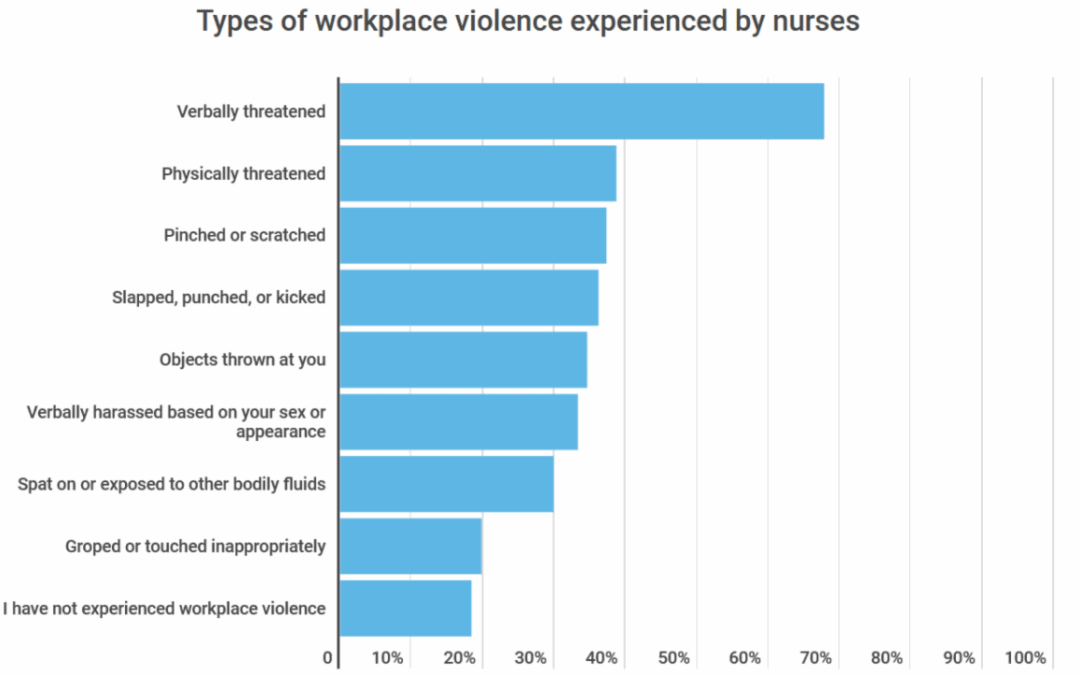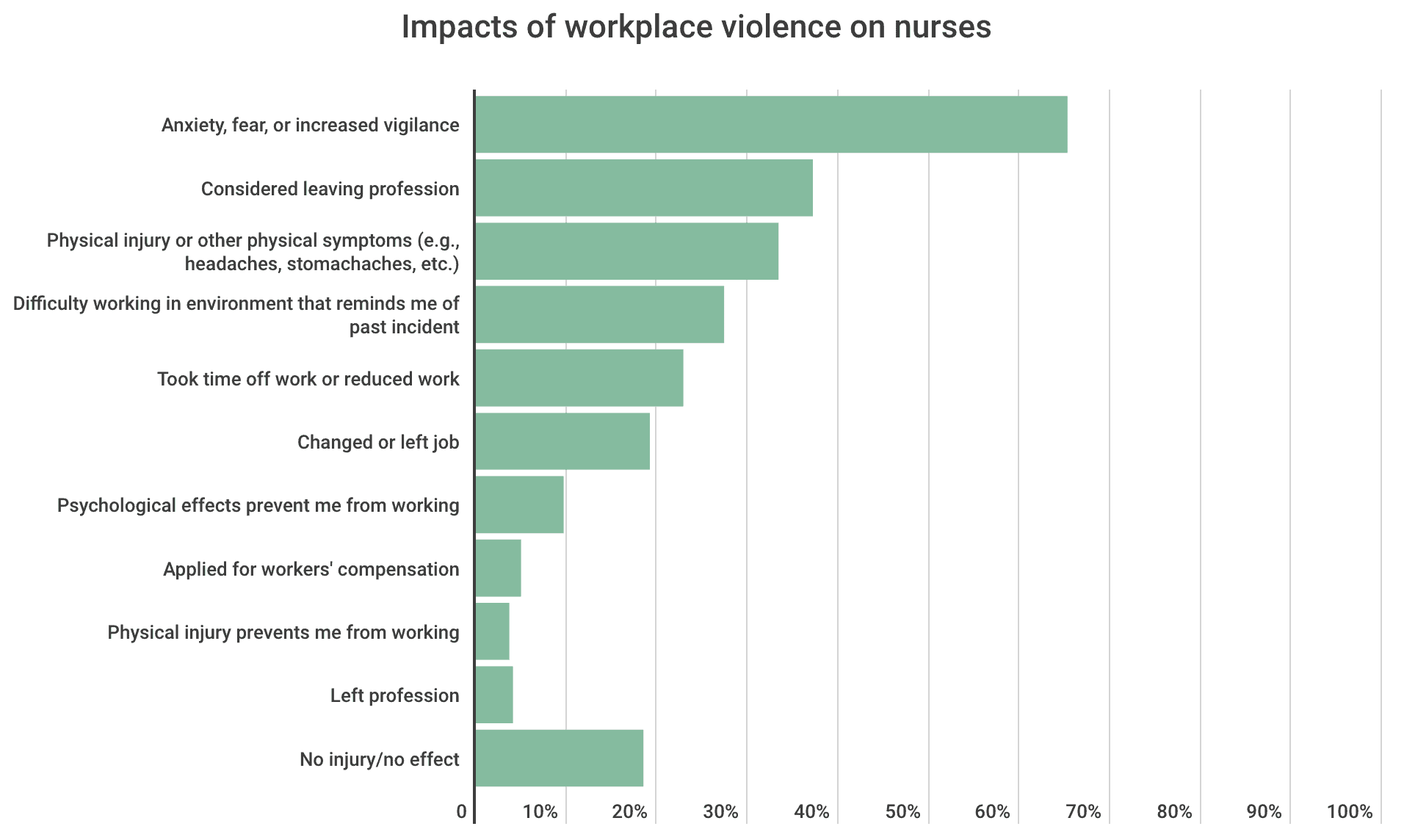If you’ve not had the need to visit or be admitted to a hospital in the last three years, the information in this issue of The Flame may surprise you. Regardless, I hope it disturbs you and urges you to action.
Recently, a new survey about increasing violence against nurses was published (see main column). One in four nurses has been abused in the workplace, mostly in the hospital setting. In an older 2022 study, Press Ganey reported that on average, two nurses were assaulted every hour.
Overall, the likelihood that health care workers are exposed to violence is higher than for prison guards or police officers. Think about that for a minute.
The stories that nurses tell are sickening, and all too common. Every day, nurses are punched, grabbed, kicked, verbally assaulted, or worse. According to the Press Ganey survey, the majority of aggressors are patients and their family members. Not surprisingly, ERs and psychiatric units saw the highest number of assaults.
In the new survey from National Nurses United (NNU), over 80% of nurses said they experienced workplace violence in 2023, pushing some nurses to consider leaving the profession altogether.
As someone who visits hospitals frequently, and hears anecdotal stories from our team at Guardian Nurses, I can share that we are all painfully aware of nurses and other healthcare staff being yelled at, videotaped, and verbally threatened by patients and visitors. It is terribly disheartening that after surviving COVID, nurses, physicians, and other healthcare staff now have to bear the burden of borderline criminal behavior by uncivil, ungrateful, and abusive people.
This month’s issue of The Flame presents some data on the troubling rise of violence. If nothing is done soon to better protect the nurses caring for you or your loved ones, the staffing shortage that is already causing bottlenecks, care concerns and hospital unit closings will only get worse.
Here are some ideas for you to do something to show your support for the nurses and healthcare workers in your life.
- If you know a nurse, ask them about their career, talk to them — if they’re open to it — about their experience, if any, with workplace violence.
- Please consider sending an email to your elected officials to express your support of protecting nurses. Here’s how.
- Sign up for RN Action, sponsored by the American Nurses Association, to educate yourself on issues, legislation and candidates.
- If you’re a patient in a hospital and you feel up to it, let your nurses know that you support them and that they deserve to feel safe. Ask them what you might do to help.
— Betty Long, RN, MHA, President/CEO, Guardian Nurses Health Advocates
Workplace violence against nurses is rising
According to a new survey published by National Nurses United (NNU), nurses were asked about their experiences with workplace violence and prevention between Jan. 1 and Dec. 31, 2023. Survey data was collected from nearly 1,000 nurses working in 48 states and the District of Columbia. Of the respondents, 80% worked in hospital settings. Other workplace settings included home care/hospice, skill nursing facilities/long-term care, and outpatient clinics.
Overall, 82% of nurses said they had experienced at least one type of workplace violence in 2023, with 68% saying they had been verbally threatened and 39% saying they had been physically threatened. Over 30% of nurses also reported being physically harmed at work, including being pinched or scratched, slapped or punched, and having objects thrown at them.
Compared to the year before, 46% of nurses said there was an increase in workplace violence in 2023. Only 4% said that workplace violence had decreased in their units compared to the previous year. As one could imagine, workplace violence has taken a physical and mental toll on nurses. Over 60% of nurses reported feeling anxiety, fear, or increased vigilance due to workplace violence, and 33% said they experienced physical injuries or other physical symptoms, such as headaches or stomach aches.
This increased violence is also pushing some nurses away from the profession. In the survey, 37% said workplace violence was making them consider leaving the profession. Another 19% said they had changed or left their jobs while 4% said they had left nursing altogether.
Efforts to combat workplace violence need improvement
In the NNU survey, 63% of nurses said their organizations provide training on workplace violence. However, only 32% said their organizations provided a clear way to report workplace violence, and only 30% said their organizations had staff available at all times to respond to violent incidents.
Many nurses also reported that their organizations often do not respond to incidents of workplace violence effectively. Less than half of respondents (42%) said their organization investigates what happened, and only 21% said that their organization changes practices to reduce the risk of violence. That HAS to change if nurses are going to feel that it’s “worth” reporting to administration.
Currently, there is no federal law that protects hospital employees from assault and intimidation. But last year, in April 2023, U.S. Representative Madeleine Dean (D-Pennsylvania) and Larry Buchson, M.D. (R-Indiana and whose mom was a nurse) introduced the Safety from Violence for Healthcare Employees Act. (SAVE). This bipartisan bill, H.R. 2584, which is modeled after current protections for aircraft and airport workers like flight crews and attendants, would create legal penalties for individuals who knowingly and intentionally assault or intimidate hospital employees — with protections for individuals who may be mentally incapacitated due to illness or substance use. It would also provide hospitals with funding for education and training programs, law enforcement coordination efforts, and facility improvements.
Two weeks ago, Jefferson Health System Chief Nurse Executive, Kate FitzPatrick, DNP, RN, FAAN, testified on Capitol Hill in support of the Bill along with other hospital representatives. Many large healthcare organizations like the American Nurses Association and the American Hospital Association are standing in support.
Also, last year in September, 2023, in the Senate, another bipartisan duo, Senator Marco Rubio (R-FL) and Senator Joe Manchin (D-WV) introduced the Senate version of the SAVE Act (S.B. 2768).
Nursing is the backbone of our healthcare system. With nearly 5.2 million registered nurses (RNs) nationwide, it is the nation’s largest healthcare profession. Isn’t it time that we stood up for a nurse we know? If Senator Marco Rubio and Senator Joe Manchin can find common ground to sponsor a bill together, surely it is legislation that needs to be passed by both chambers of Congress and made into the law of the land. What are we waiting for?


